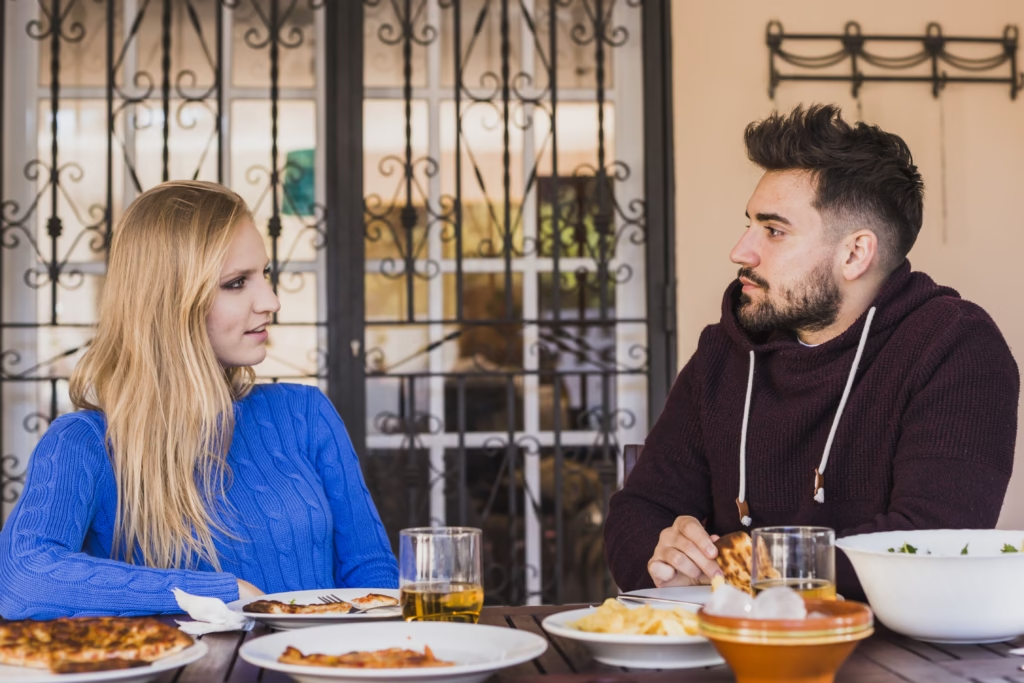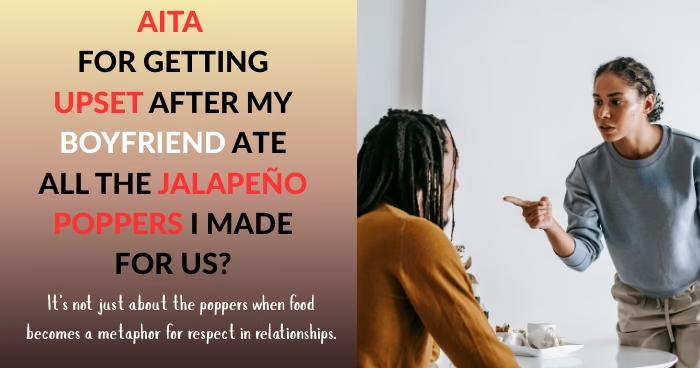AITA for Getting Upset After My Boyfriend Ate All the Jalapeño Poppers I Made for Us?
OP (21F) recently cooked a cozy dinner for her and her boyfriend (22M), including jalapeño poppers she hadn’t had in a while and was really looking forward to. The appetiser was meant to be shared; there were 8 poppers in total. But while OP was still getting settled to watch a movie, her boyfriend polished off all of them within 15 minutes. By the time she reached for one, the plate was empty.
My Boyfriend Ate All the Jalapeno Poppers – AITA?
When OP questioned him, his response was dismissive: “You didn’t say you wanted any.” This sparked a quiet conflict—not just about the food, but what it symbolized. OP is now wondering whether she’s overreacting or if this moment reveals a deeper inconsideration in the relationship.

Image Credit:Antonio_Diaz
When the Popper Becomes the Last Straw: Why Small Acts Matter in Relationships
At first glance, this may seem like a petty squabble over a plate of appetisers. However, in relationships, small acts of consideration or their absence often reveal larger dynamics at play. Psychologists call this “emotional micro-attunement,” the everyday ability to recognize and respond to your partner’s feelings, needs, and expectations.
According to Dr. John Gottman, a leading relationship researcher, one of the biggest predictors of long-term satisfaction is whether partners “turn toward” each other in small moments of interaction.
That includes acts like sharing food, showing appreciation, or being mindful of someone else’s enjoyment. By eating all the jalapeño poppers without offering even one and then deflecting blame, OP’s boyfriend may have signaled a lack of this awareness.

Credit: Getty Images/iStockphoto
His defense, “You didn’t say you wanted any”, is a classic example of what some call weaponized literalism. It’s when someone defaults to hyper-literal reasoning to avoid taking emotional responsibility.
Of course, OP didn’t explicitly say “I want some”; she cooked them for both of them. In most shared living or dating scenarios, there’s an implicit expectation that food, especially homemade food, is meant to be shared.
This behavior isn’t just inconsiderate, it’s emotionally lazy. It’s a subtle way of shifting the blame back onto the person who feels hurt. Instead of acknowledging her disappointment, he minimized it by suggesting that it’s “just snacks,” effectively invalidating her feelings.
In most healthy partnerships, sharing is a baseline expectation. It’s not about rigid fairness (like counting each popper), but about mutual respect.
Cooking for someone involves time, effort, and care. Eating the entire portion, especially without checking in, shows a disregard for that effort and the shared experience.

Numerous relationship studies back this up: consistent small acts of selfishness tend to erode trust and intimacy over time (Journal of Social and Personal Relationships, 2020).
While this one incident isn’t enough to declare a relationship doomed, if this kind of dynamic repeats—where one partner routinely fails to consider the other’s feelings, it can point to deeper incompatibility.

Image Credit: Freepik
In each case, the issue isn’t just the food; it’s what the behavior communicates about the relationship.
Ultimately, OP’s frustration is valid not because jalapeño poppers are sacred, but because the situation exposed a lack of mutual regard. It’s not about one appetiser; it’s about being seen, valued, and included.
If this is a pattern, not an isolated lapse, the OP may want to reflect on whether her needs are regularly being overlooked in other areas as well.
So, Reddit: Is this boyfriend just oblivious, or does a plate of poppers say more than it seems?






